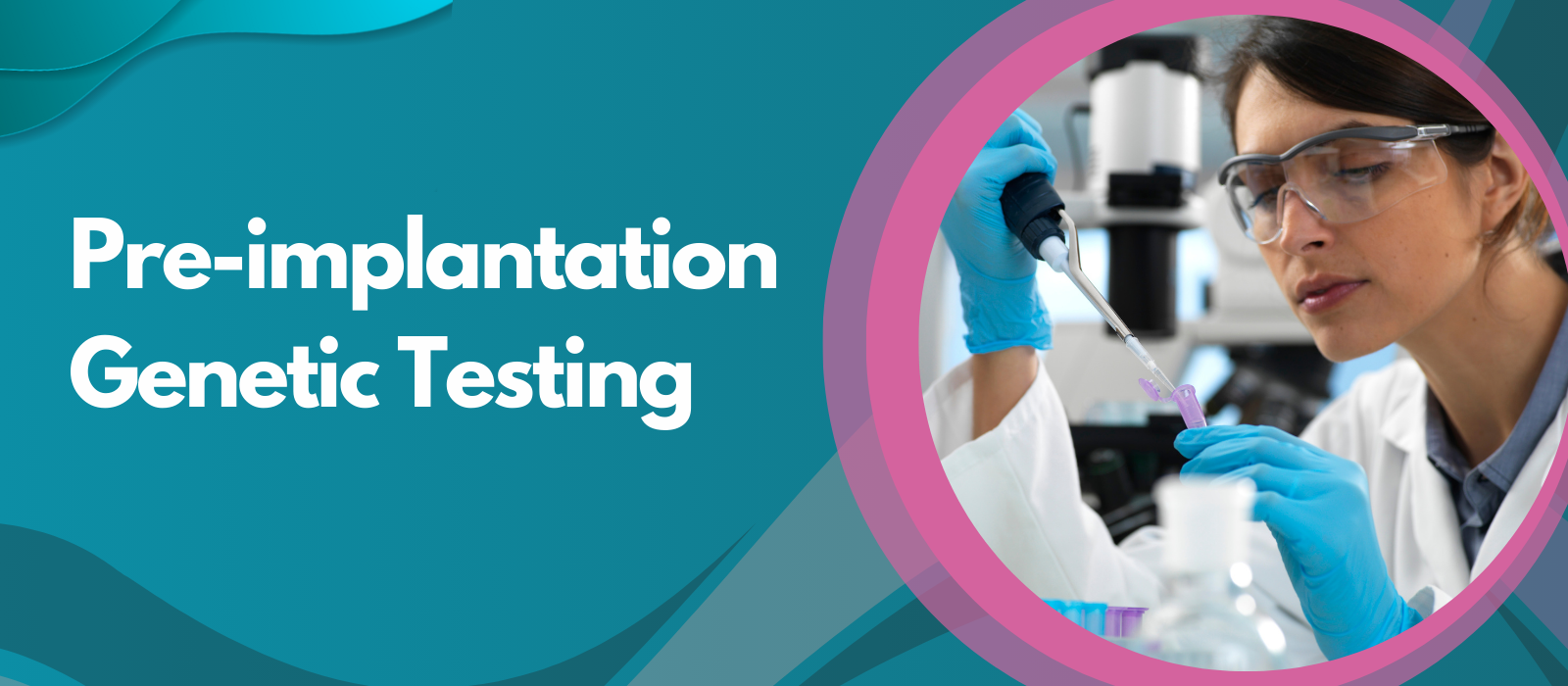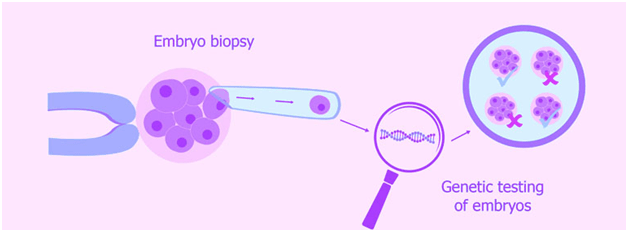
Pre-implantation Genetic Testing in Ahmedabad
Nisha IVF Centre in Ahmedabad is the best IVF center that offers state-of-the-art IVF procedures with a high success rate. The IVF specialists at Nisha IVF perform requisite tests and procedures for success in every IVF cycle and pregnancy. They stand committed to treat their patients for the best results and are one of the best IVF doctors in Ahmedabad.
Preimplantation genetic testing is one of the highly reliable procedures that promise success in an IVF cycle. Nisha IVF, too recommends preimplantation genetic testing for in-depth diagnosis and clinical evaluation of the embryo during an IVF cycle, depending upon their IVF patient’s medical history for a successful IVF experience.
The IVF specialist may have recommended pre-implantation genetic testing during an IVF cycle or a potential patient who plans to undergo an IVF cycle soon.
Let us throw insights into preimplantation genetic testing and its two different testing procedures viz.
- Preimplantation genetic diagnosis
- Preimplantation genetic screening
Preimplantation genetic testing

Why do IVF specialists suggest preimplantation genetic testing?
IVF doctors suggest preimplantation genetic testing to prevent IVF failure and miscarriages. Studies have revealed that chromosomal abnormalities can cause early miscarriages and failures of IVF cycles.
What is a chromosomal abnormality?
A human cell contains 46 chromosomes. There are high chances of a child born with defects when cells with either less or more than 46 chromosomes are used during an IVF cycle. This abnormality is known as aneuploidy
For instance –
- Turner syndrome occurs in a baby when a single chromosome is missing in the cell used for pregnancy.
- Down syndrome occurs in a baby when there is one extra chromosome 21 – trisomy 21 in the cell used for pregnancy.
Aneuploidy can either be inherited or be new to the person. In the case of aneuploid state of the transferred embryo, the patient is likely to miscarry, or the IVF cycle may fail. Hence to be on the safe side, IVF specialists suggest preimplantation testing of the embryo before transferring them into the uterus.
Preimplantation genetic diagnosis
Preimplantation genetic diagnosis – PGD is a test to detect specific and known genetic disorders in the embryo before they are implanted in the uterus. If the PGD states that the tested embryos are unlikely to be affected by the disorder, they are transferred into the uterus.
Why do IVF specialists suggest preimplantation genetic diagnosis?
IVF specialists emphasize performing a preimplantation genetic diagnosis for patients with a history of inheritable diseases in the family. The cells from each embryo are tested for genes linked to a specific inheritable disease.
They also recommend preimplantation genetic diagnosis – PGD for a patient –
- With a history of recurring miscarriages
- With a history of failure in multiple fertility cycles
- Of age over 35 years
- With ovaries are not in prime working condition
Preimplantation genetic screening (PGS)
Preimplantation Genetic Screening involves screening embryo biopsies to count the number of chromosomes in each biopsy sample. A normal embryo should have 23 pairs of chromosomes, i.e., 46 chromosomes.
If the tested embryo is detected with less than or more than 46 chromosomes, it is referred to as an aneuploid embryo and is unsuitable for implantation.
Aneuploid embryos are likely to lead to failure in the IVF cycle, miscarriage, or birth of a child with a chromosomal syndrome.
The IVF specialists study the Preimplantation genetic screening report in detail to recommend the most suitable embryo for transfer depending upon the grading or the morphology of the embryos mentioned in the screening report.
Why do IVF specialists suggest preimplantation genetic screening?
Preimplantation Genetic Screening is recommended for patients with a history of recurring miscarriages either through normal conception or assisted reproduction methods. The IVF specialists recommend Preimplantation Genetic Screening to minimize the risk of chromosomal errors in patients across all age groups and ensure a successful pregnancy.
Key advantages of Preimplantation Genetic Screening
- Enabling Single Embryo Transfer using the best and the healthiest embryo
- Minimizing risks associated with health complications due to multiple pregnancies
- Higher chances of successful IVF cycles and pregnancy
